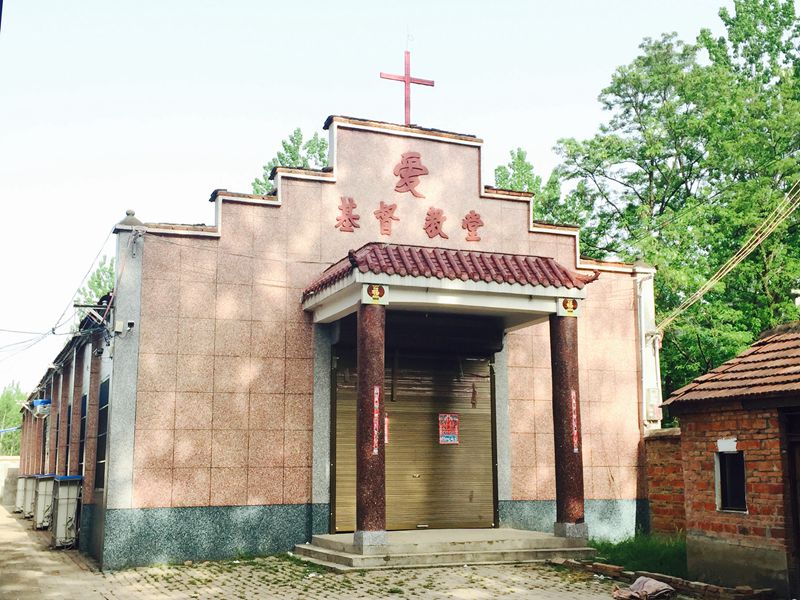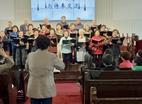Pastor is a sacred occupation. Ephesians 4:11-13 claims, "So Christ himself gave the apostles, the prophets, the evangelists, the pastors and teachers, to equip his people for works of service, so that the body of Christ may be built up until we all reach unity in the faith and in the knowledge of the Son of God and become mature, attaining to the whole measure of the fullness of Christ."
We can know that a pastor mainly preaches the word of God, feeds the Lord's sheep, and manages the church in accordance with the law of Christ. So should a pastor keep learning and how should he learn? The Christian Times interviewed six people, including pastors and a preacher, to share their views.
Brother Li: A pastor needs constant learning, but a stagnant church tends to be more conservative.
Having followed Jesus for 17 years, Brother Li, an editor of a Christian media company, stated that a pastor's knowledge directly determines the overall level of his congregation under the current Christianity in China. Therefore, a pastor needs to keep learning -- a stagnant church is prone to be more conservative and has spiritual cultivation rather than practice faith. The study should cover understanding the times and an accumulation of human knowledge, especially history -- because the development of Christianity, including the Bible, was made with a specific historical background; one might deviate from the teachings of Jesus Christ if he didn't know that background.
Li added that there was a general emphasis on the importance of theology among pastors, leading to the emergence of many "fast-developed" pastors. "The weakness in knowledge causes pastors to preach hollow doctrinal sermons divorced from believers' life and thus the sermons fail to have a positive influence on believers." Li said.
He suggested pastors read through university textbooks on liberal arts such as history, literature, art history, and legal history.
Rev. Elijah: A pastor needs to learn extensively
Rev. Elijah, who has pastored in a house church for decades, said that pastors are "easily" ordained in some house churches. "Believers in some house churches served fervently and grew rapidly, also engaging in preaching. As the number of sheep increased and their experience grew, their church ordained them as pastors. It was perfunctory." He stated.
He advised those who didn't receive formal theological education before ordination to learn more. It was not enough to be skilled in the Bible to feed the church. "You need to learn group management and discipleship techniques. Pastors need to arrange courses for each department." He said that it was necessary to learn knowledge and techniques, otherwise the church would fall prey to traditions and extremes.
A pastor should learn extensively with the purpose of being a better shepherd for the church, he suggested.
Preacher Chen: A pastor stopping learning does the biggest harm to a church.
Preacher Chen has of years' pastoral ministry experience in Henan and mentioned that the greatest harm to a church is a pastor didn't learn or want his congregation to learn. In that situation the congregation would perish along with its pastor.
He said that he met a few preachers who kept preaching the same sermons over and over. They didn't learn because their congregations received less education than them.
Chen indicated that pastors should often remind their congregations to improve themselves. Their progress would force pastors to learn in turn.
Rev. James: Apart from studying the Bible, a pastor should keep pace with the times.
Rev. James from Hangzhou held that a pastor must keep learning because he often preaches sermons and puts out lots of information.
He should know the development trends and future of his church. What's more, his congregation would follow a pastor anxious to learn to learn more then the church would broaden its knowledge areas quickly.
He said that he keeps a personal learning habit: besides daily morning devotionals and prayer, he reads news and books in the evening; he visits local museums in new cities and joins in sermons delivered by famous pastors, activities, and gatherings to improve himself.
Sister Yao: A pastor should not neglect the significance of science and methodology.
Sister Yao, a post-90s Christian living in Shanghai, claimed that a pastor needed to study other subjects including enterprise management, history, and psychology. In addition, a pastor should have a universal knowledge and common sense, avoiding being blinded by spirituality.
Regarding how to learn, Yao said, "I hope a pastor should learn in a specific direction based on his church's surroundings and the characteristics of his congregation. For example, he can learn about business if there is a business area and the subjects and features of students if there is a school nearby."
Brother Liang: A pastor needs to share with his church.
Brother Liang, a second-generation Christian, said a pastor needed to learn more and share with his church. "Many pastors learn a lot, but their congregations know nothing." He added.
He said that a pastor remains authoritative when he has never been "surpassed", so the church should lead its congregation to study together.
- Translated by Karen Luo















